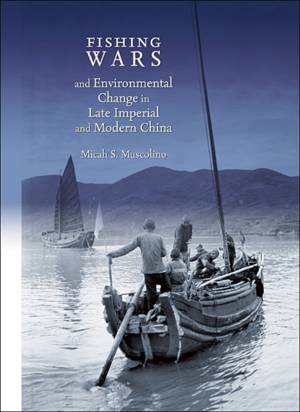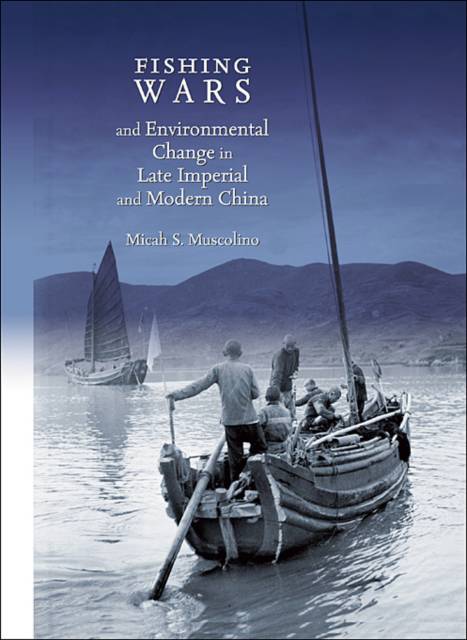
- Retrait gratuit dans votre magasin Club
- 7.000.000 titres dans notre catalogue
- Payer en toute sécurité
- Toujours un magasin près de chez vous
- Retrait gratuit dans votre magasin Club
- 7.000.0000 titres dans notre catalogue
- Payer en toute sécurité
- Toujours un magasin près de chez vous
Fishing Wars and Environmental Change in Late Imperial and Modern China
Micah S Muscolino
67,95 €
+ 135 points
Description
Among the environmental challenges facing us is alleviating the damage to marine ecosystems caused by pollution and overfishing. Coming to grips with contemporary problems, this book argues, depends on understanding how people have historically generated, perceived, and responded to environmental change. This work explores interactions between society and environment in China's most important marine fishery, the Zhoushan Archipelago off the coast of Zhejiang and Jiangsu, from its nineteenth--century expansion to the exhaustion of the most important fish species in the 1970s.
This history of Zhoushan's fisheries illuminates long-term environmental processes and analyzes the intersections of local, regional, and transnational ecological trends and the array of private and state interests that shaped struggles for the control of these common-pool natural resources. What institutions did private and state actors use to regulate the use of the fishery? How did relationships between social organizations and the state change over time? What types of problems could these arrangements solve and which not? What does the fate of these institutions tell us about environmental change in late imperial and modern China? Answering these questions will give us a better understanding of the relationship between past ecological changes and present environmental challenges.Spécifications
Parties prenantes
- Auteur(s) :
- Editeur:
Contenu
- Nombre de pages :
- 300
- Langue:
- Anglais
- Collection :
- Tome:
- n° 325
Caractéristiques
- EAN:
- 9780674035980
- Date de parution :
- 01-11-09
- Format:
- Livre relié
- Format numérique:
- Genaaid
- Dimensions :
- 152 mm x 229 mm
- Poids :
- 607 g

Les avis
Nous publions uniquement les avis qui respectent les conditions requises. Consultez nos conditions pour les avis.






